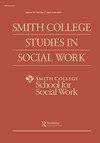通过去殖民化解放社会工作教育
IF 0.9
Q2 SOCIAL WORK
引用次数: 0
摘要
本文章由计算机程序翻译,如有差异,请以英文原文为准。
Liberating Social Work Education Through Decoloniality
ABSTRACT Within Social Work education, there has been a rising call for decoloniality. Among the areas most frequently targeted for transformation are the privileging of Christian Euro-centric sources of knowledge and means of transmission, Christian Euro-centric relational norms and behaviors, Euro-centric standards of excellence and professionalism. The origin of coloniality is steeped in four pillars, White Supremacy, Patriarchy, Capitalism and Christianity, labeled as the Colonial Matrix of Power (CMP). Bolstered by the promises that the principles comprising modernity (development, progress, rationality) are good for all, those managing and controlling the CMP define what are considered legitimate forms of knowledge (epistemology) and status of being (ontology). This paper offers a perspective on how the transformation of social work education is contingent upon the development of critical consciousness, legitimization of indigenous knowledge and cosmologies, critical realism, epistemic disobedience, and the primacy of connection and relationship among all entities. Through re-developing these skills and practices, social work education can take a verdant role in the decoloniality of professional education.
求助全文
通过发布文献求助,成功后即可免费获取论文全文。
去求助
来源期刊

SMITH COLLEGE STUDIES IN SOCIAL WORK
SOCIAL WORK-
CiteScore
1.50
自引率
10.00%
发文量
10
期刊介绍:
Smith College Studies in Social Work focuses on the vital issues facing practitioners today, featuring only those articles that advance theoretical understanding of psychological and social functioning, present clinically relevant research findings, and promote excellence in clinical practice. This refereed journal addresses issues of mental health, therapeutic process, trauma and recovery, psychopathology, racial and cultural diversity, culturally responsive clinical practice, intersubjectivity, the influence of postmodern theory on clinical practice, community based practice, and clinical services for specific populations of psychologically and socially vulnerable clients.
 求助内容:
求助内容: 应助结果提醒方式:
应助结果提醒方式:


